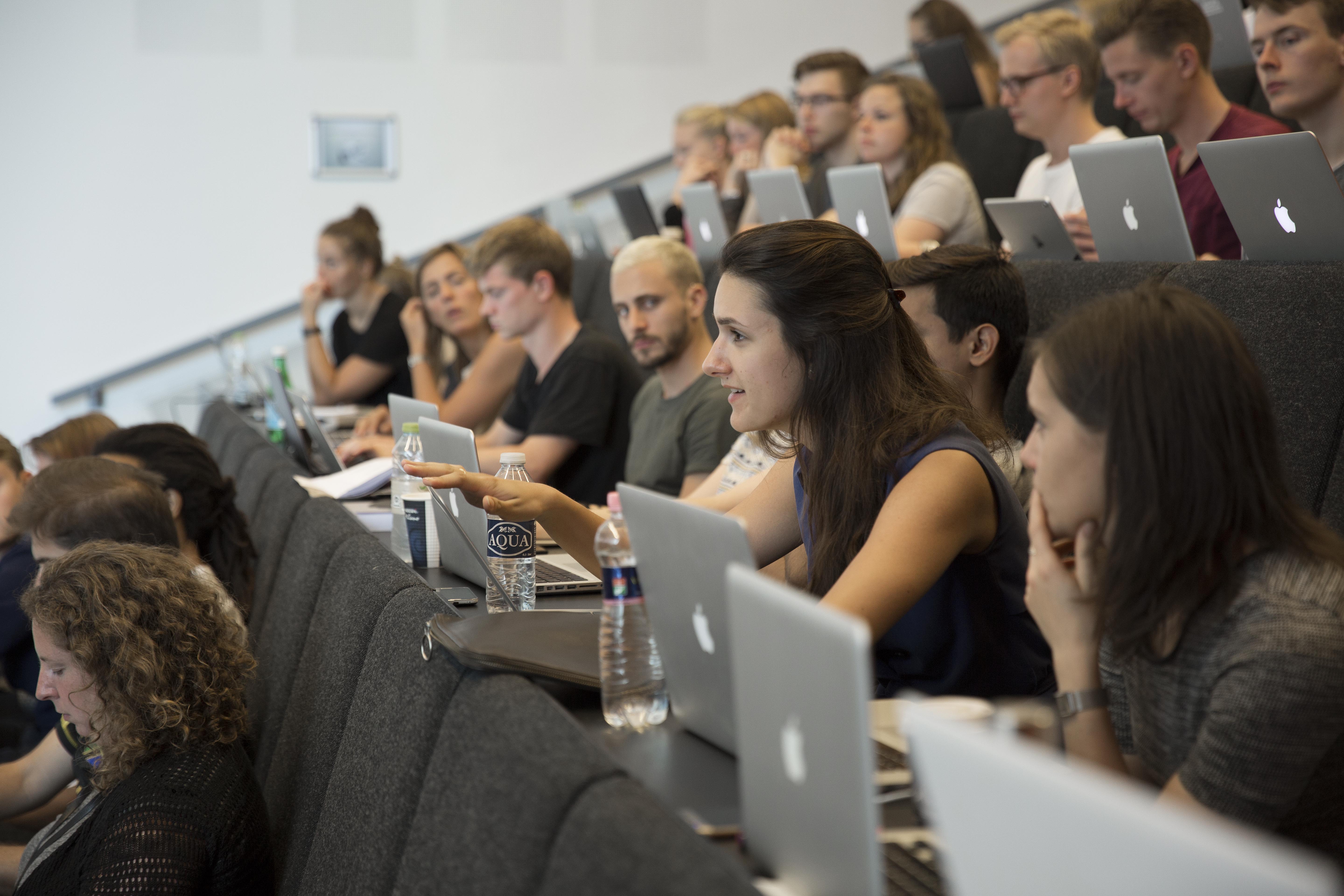Fun. Interesting. Rewarding. Those were the words student Lina Skerath used to describe her time at The IT University of Copenhagen (ITU) in Denmark. Hailing from Lithuania, Lina studied for her bachelor’s degree at one of her home country’s top-rated universities before coming to Denmark to pursue an MSc in Data Science. She had heard about the beauty of studying in Denmark from her friend and knew she had to pursue her postgraduate education there.
“I never imagined how much the study experience could differ even though I had heard of Denmark’s high-quality education,” enthuses Lina. “It took me three years and a finished degree to find the courage to apply.”
Established in 1999, ITU is a Danish institution devoted solely to IT research and education. Fast forward to the present, ITU is Denmark’s youngest university and also one of its leading universities. It offers 10 programmes covering games, digital design, data science, business and software engineering, most of which are taught in English. These programmes combine a unique view of IT, education and research.

At this university that promotes diversity and equality, around 36% of students are female. Source: The IT University of Copenhagen
For students interested in data science, look no further than ITU’s BSc in Data Science, which develops you to become a next-generation analyst with comprehensive analytical and technical skills. Upon completion, ITU’s MSc in Data Science will let you further specialise in the skills and knowledge that you acquired. You will gain profound mathematical and algorithmic foundations for a deep understanding of emerging technologies, statistics and computational challenges. For Lina, this programme changed her whole view on education.
“Everything seemed very exciting from the beginning. I think the class that scared me but ended up being one of my favourites was Algorithmic Design — it was challenging but very rewarding,” enthuses Lina. “I really enjoyed all classes that included projects and teamwork — I had never gotten to experience those before during my studies and I see so much value in practical work compared to just theory.”
Master’s programmes are just as impactful. The business-focused MSc in Computer Science empowers students to work on projects concerning software development and maintenance of software as well as learn about the organisational and managerial part of a development process. The MSc in Games is for those who want to create the future of play — students gain practical and theoretical knowledge on how computer games are made, how they create meaning, and how they impact our social interactions and communities. Both MSc require an educational background in computer science or corresponding.
For those who do not have an IT-related undergraduate degree, but wish to develop skills and knowledge within IT to combine with your undergraduate degree, the MSc in Software Design is for you. You will gain in-depth knowledge of software design, programming languages, distributed systems, algorithms, software development processes, requirements as well as organisation and management.

High academic standards are what ITU constantly strives for. Source: The IT University of Copenhagen
In designing these programmes, ITU considers three main factors: it must attract many top-level students, be of the highest academic standard and provide competencies in high demand in the job market. This may seem difficult with such high standards, but to ITU, it’s not impossible. It collaborates closely with the industry, the public sector and international researchers so that students receive state-of-the-art teaching and research. These are the top reasons why many apply to its programmes and many graduates find fulfilling careers with their ITU degrees.
Whether you’re looking to become a next-generation data analyst, an innovator in the fields of game and play, an aspiring software engineer, or a budding creative in digital media and technology, ITU’s programmes will pave your way to success.
As an ITU graduate, you’ll be highly sought after and thanks to ITU’s career-related events, have many opportunities to meet and impress your future employers. In 2019, over 7,400 students have completed their education, and more than 100 startups have been founded at ITU.
Follow The IT University of Copenhagen on Facebook, Twitter, LinkedIn, Instagram and YouTube










